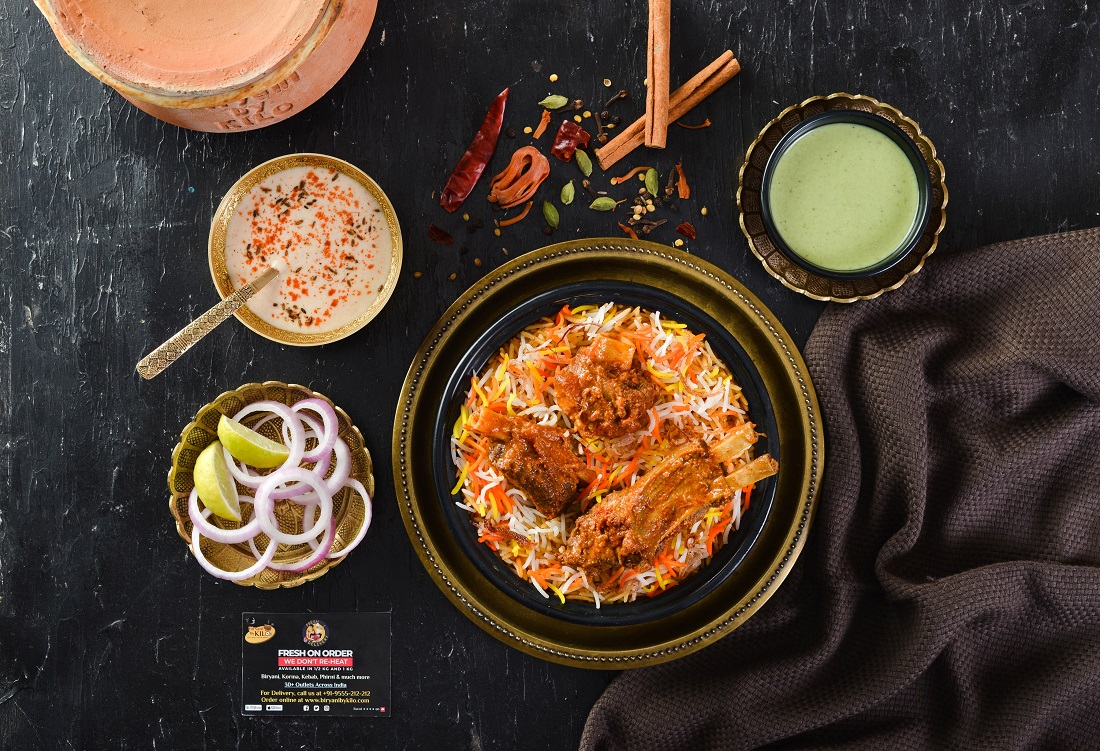
(Editor’s note: This story is first in a series on how Covid-19 affected businesses.)
Biryani by Kilo was getting ready for expansion to the US market when the pandemic hit.
It is a sunny Saturday morning in New Delhi, and spring has already started giving way to traces of summer. But in the Gurugram headquarters of the food start up Biryani by Kilo, the phone hasn’t stopped ringing with customers calling with their food deliveries orders for the day. “We survived the pandemic,” says Vishal Jindal, co-founder and co-CEO of Biryani by Kilo. “And dare I say, with flying colors,” he adds.
The covid-19 pandemic has affected almost all industries in an unprecedented way. And the dining and food delivery services were the first ones to take the brunt. It was a sudden blitzkrieg that struck us almost unannounced agrees Jindal whose unique food start-up was launched in 2015. The company had raised around $1 million in pre-series A round in 2018 and had the target of becoming an approximately $14 million business in the next two years. Encouraged by a great response in the global market, the company had plans to lead the way and become a premium Biryani and Kebab Food Services Company globally, with a vision to clock a revenue of more than $77.48 million (Rs 5 billion).
“The plans to go global was spun out of the sheer demand we witnessed in that category,” says, Jindal. The founders maintain that they have been inundated by requests from “traveling NRIs [non-resident Indians] to pack a handi every time they wanted to travel abroad,” he says.
READ: Covid-19: Indian, ethnic eateries in US set for big hit (April 3, 2020)
“The plan to go global is very much there,” says Jindal. Of course, biryani remains a preferred Indian food for the Indian diaspora around the world, including Indian Americans. In fact, if you were to ask a Westerner chances are they would know chicken tikka and biryani as the only Indian dishes.
That sentiment is shared by Jindal, who said that during his several research trips he realized that biryani remains one of the most ordered items on menus across ethnic restaurants globally.
What works in biryani’s favor is that it checks all the criterion of great wholesome meal for someone new to the cuisine. Jindal says, “It can be a complete meal in a bowl, it is not overtly hot or spicy, it is nutritious and combines staple ingredients like rice and meat that are eaten around the world so there is an undiscovered familiarity even if a person may be having the dish for the first time.”
While Americans are not typically known for eating rice, Jindal is confident they will love his biryani. “Biryani is a right balance of protein and carbohydrates so it works across continents. Rice and beans a South American staple has already made its way into North American mainstream. Often what works for a food to be a hit is that you introduce an ingredient which is not yet mastered in the home kitchens but is a wholesome meal in itself. Americans are exposed to rice and even love it, they need to get used to it in the homegrown Indian biryani format.”
READ: Why Indian food has not gone mainstream in America (June 11, 2019)
Jindal also spoke about how the pandemic has changed the game for the food industry. “Covid tested all businesses in a never before way,” he says. “Even though, we had built a goodwill, we knew now was the time for renewed confidence. We knew we had what it takes to provide safe food during pandemic as all of our handis are not touched by hand and are prepared individually. But still, since it was a rapidly evolving situation, we didn’t want that in a bid to push our business we lose out on the hard work of the years.”
Jindal says the company worked with experts, and consulted scientists and doctors to put a safety protocol in place. “Our kitchens were equipped with all the sanitization methods and we were doing periodic health checks on all our staff. We also reached out to customers through approachable mediums such as social media to show first-hand that ordering food could be safe. We got in touch with friends, influencers and even celebrities and first showed them first-hand how we were abiding with safety protocols and built a sort of confidence network that grew. Till today we haven’t laxed on any safety protocols and we are encouraging no-touch deliveries.”
Jindal agrees that the major emphasis on the format of ordering food instead of purely dining in also saved the day. However, with the right precautions, people do feel comfortable visiting trusted eating joints too.
READ: Why Indian food version 2.0 will be a hit in the West (May 4, 2019)
The times ahead continue to be challenging as the global economy is not yet on a recovery route and to set up global businesses one need to be mindful of the market constraints. But the company is hopeful of expanding, amidst the challenges. Jindal says, “We already have 50+ outlets in India and many big F&B businesses from US have approached us for our franchise format. All we would say is, when times are tough and people are fighting problems such as isolation and lack of human interaction, food serves as an idea of comfort. It is a reminder of life’s little joys and is our link to the world outside even though we may not be actively dining out yet. We are building our post COVID strategies on these principles and a lot of healing energy. We are hopeful we will very soon see a better world and a bigger number of biryani eaters!”



